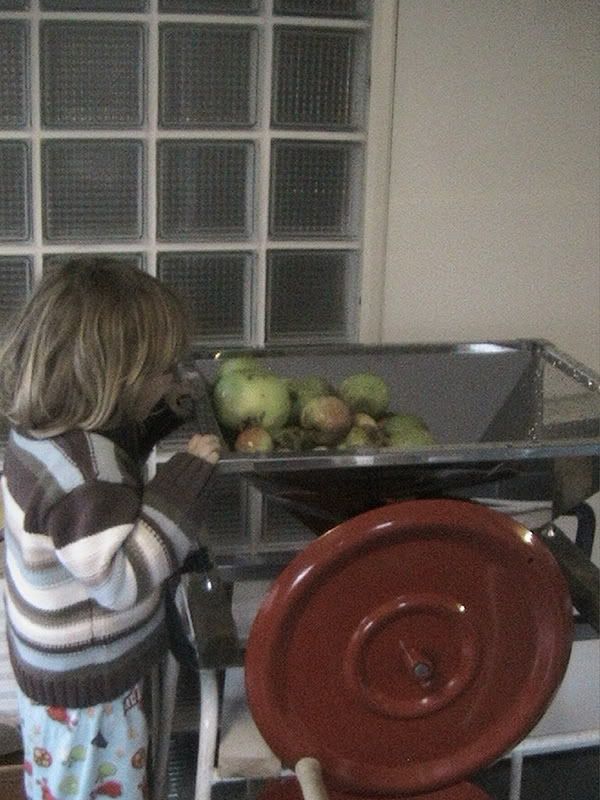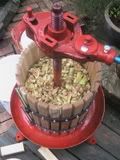We've had a slow start to the fermentation - enough to worry the OH who has yet to learn the art of patience.

By late Tuesday, we had not had a bubble out of the cider. This is slow but not necessarily bad, so while I wasn't ready to intervene just yet I did a few tests by drawing off about half a pint of juice.
First, I started by putting a small amount of juice in a screw-top jar, adding a pinch of fast acting bread yeast, shaking vigorously and then left in a warm place. This checks if it's the juice or the brewing yeast that's the problem.
Second, I put another small amount of juice in a screw-top jar, added nothing and shook it vigorously. This checks to see if the problem is one of too little oxygenation of the yeast.
Third, I put yet more juice in yet another jar, added half a teaspoon of lemon juice, stirred gently and left it. This checks to see if the juice has high enough acidity.
Fourth, I put the last of the juice in a final jar, add a teaspoon of cold black tea, stirred gently and left it. This checks to see if the juice has enough tannin.
After two hours, jar one (with the bread yeast) was bubbling gently. A vigorous bubbling would be best but at least the juice was capable of being fermented.
Jar two, with nothing but agitation, produced a few small bubbles but nothing else. So, it wasn't oxygenation.
Jar three, with extra acid, produced slightly more bubbles than the oxygenation jar but still very few in total. So, no problem with the acidity.
Jar four, with the tea, was the same as jar three - slightly more bubbles than oxygenation but still very few in total. So, no problem with the tannin.
That pretty much left it in the hands of the yeast (Young's Cider Yeast) - warmth wasn't a factor as the original batch and all the samples were just over 20C.
So, I left it for another 24 hours and was rewarded last night with a sudden huge belch of gas. Then a few more over the space of a few hours and finally this morning the regular bubbling started.
I've used Young's cider yeast before and it usually takes about 24 hours to really kick off, but this batch of yeast was clearly a slow burner.
So, if your cider fermentation doesn't kick off on day one, day two or day three - don't be precipitate. By all means test some samples, but be patient, keep the cider warm and wait a little longer (although I'd consider intervening on the fourth day when the risk of the juice spoiling is becoming too great).









